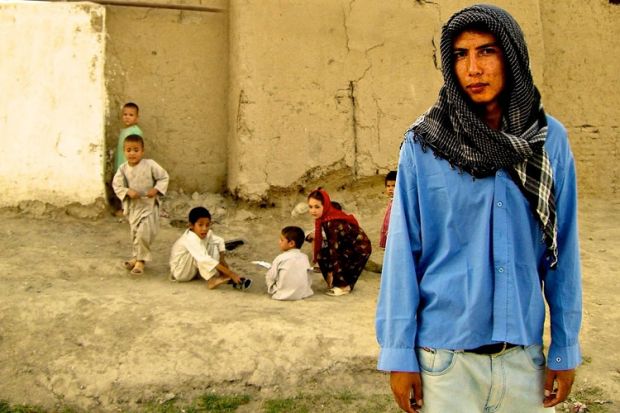Eight £15,000 grants from the Arts and Humanities Research Council will help small firms and organisations join forces with academics to tap into archives.
The funds will be used to examine everything from African cinema and disappearing oral cultures to London’s rise to pre-eminence as a “foodie” capital.
Sue Clayton, reader in media arts at Royal Holloway, University of London, is a film-maker with a long-standing interest in the issue of unaccompanied asylum-seeking children, many of them “looked after in Britain until the age of 18 and then often picked up in the middle of the night and dumped back in the war zones they came from”.
She has compiled more than 200 hours of interviews with young people, mainly from Afghanistan, Sudan and Eritrea, which form a crucial resource for those working in the area.
The AHRC grant has allowed her to join forces with Counterpoints Arts, which will provide the technical and design expertise to transform the raw footage into an online “migratory archive”.
This will include an indexed resource for campaigners and lawyers along with selected interactive material for the general public designed to raise awareness and to challenge common assumptions about asylum seekers as “scroungers”.
There are also plans to create short “pop-up clips” that can be projected in public events and spaces such as music festivals and skateboard parks.
The London College of Communication will use its funding to promote further study relating to its archive of Her Noise, a major exhibition of sound art and experimental music by women, held at the South London Gallery, Tate Modern and the Goethe-Institut London in 2005.
Not only was it “an exhibition which marked a moment”, said Cathy Lane, professor of sound arts, but it included much material ideal for “kick-starting research into gender and subjectivity within sound arts practice”.
Together with the arts organisation Electra, which curated the original show, the LCC plans to “develop a curriculum and run a non-academic course on the issues raised by the archive, and the wider field of feminist sound arts, called ‘Sex, Technology, Power’”.
Meanwhile, Joshua Abrams, principal lecturer in the department of drama, theatre and performance at the University of Roehampton, wants to explore changing styles of “culinary performance” over the period from when “there would have been no idea of British cuisine as something to be taken seriously” to London’s current status as a major gastronomic centre.
Working with catering and events company Creative Belly and its chef and owner, Ben Spalding, Dr Abrams will look into culinary archives and visit the key venues to obtain recipes and sales data, and get “a sense of the clientele – leading restaurants now keep many details of their high-end regulars…We will be examining whether we are moving towards a more American style of service, the whole performance experience, the narratives around dishes, how intrusive waiters are and how they interact with the tables.”
Other projects will involve the archives of the Geffrye Museum and Wayne McGregor/Random Dance, a leading dance company.
All will take place under the auspices of Creativeworks London, a group of London-based universities, colleges, museums, libraries and archives that forms one of the AHRC’s four Knowledge Exchange Hubs for the Creative Economy.
Bids for funding had to be put in by the small and medium-sized enterprises. In successful cases, they received £5,000, while £10,000 was distributed to the academic partner.





